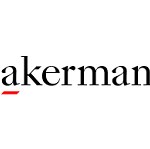-
Is there a legal definition of a franchise and, if so, what is it?
-
Are there any requirements that must be met prior to the offer and/or sale of a franchise? If so, please describe and include any potential consequences for failing to comply.
-
Are there any registration requirements for franchisors and/or franchisees? If so, please describe them and include any potential consequences for failing to comply. Is there an obligation to update existing registrations? If so, please describe.
-
Are there any disclosure requirements (franchise specific or in general)? If so, please describe them (i.e. when and how must disclosure be made, is there a prescribed format, must it be in the local language, do they apply to sales to sub-franchisees) and include any potential consequences for failing to comply. Is there an obligation to update and/or repeat disclosure (for example in the event that the parties enter into an amendment to the franchise agreement or on renewal)?
-
If the franchisee intends to use a special purpose vehicle (SPV) to operate each franchised outlet, is it sufficient to make disclosure to the SPVs’ parent company or must disclosure be made to each individual SPV franchisee?
-
What actions can a franchisee take in the event of mis-selling by the franchisor? Would these still be available if there was a disclaimer in the franchise agreement, disclosure document or sales material?
-
Would it be legal to issue a franchise agreement on a non-negotiable, “take it or leave it” basis?
-
How are trademarks, know-how, trade secrets and copyright protected in your country?
-
Are there any franchise specific laws governing the ongoing relationship between franchisor and franchisee? If so, please describe them, including any terms that are required to be included within the franchise agreement.
-
Are there any aspects of competition law that apply to the franchise transaction (i.e. is it permissible to prohibit online sales, insist on exclusive supply or fix retail prices)? If applicable, provide an overview of the relevant competition laws.
-
Are in-term and post-term non-compete and non-solicitation clauses enforceable and are there any limitations on the franchisor's ability to impose and enforce them?
-
Is there an obligation (express or implied) to deal in good faith in franchise relationships?
-
Are there any employment or labour law considerations that are relevant to the franchise relationship? Is there a risk that the staff of the franchisee could be deemed to be the employees of the franchisor? What steps can be taken to mitigate this risk?
-
Is there a risk that a franchisee could be deemed to be the commercial agent of the franchisor? What steps can be taken to mitigate this risk?
-
Are there any laws and regulations that affect the nature and payment of royalties to a foreign franchisor and/or how much interest can be charged? Are there any requirements for payments in connection with the franchise agreement to be made in the local currency?
-
Is it possible to impose contractual penalties on franchisees for breaches of restrictive covenants etc.? If so, what requirements must be met in order for such penalties to be enforceable?
-
What tax considerations are relevant to franchisors and franchisees? Are franchise royalties subject to withholding tax?
-
How is e-commerce regulated and does this have any specific implications on the relationship between franchisor and franchisee? For example, can franchisees be prohibited or restricted in any way from using e-commerce in their franchise businesses?
-
What are the applicable data protection laws and do they have any specific implications for the franchisor/franchisee relationship? Does this have any specific implications in the franchising context? Is the franchisor permitted to restrict the transfer of (a) the franchisee's rights and obligations under the franchise agreement or (b) the ownership interests in the franchisee?
-
Does a franchisee have a right to request a renewal on expiration of the initial term? In what circumstances can a franchisor refuse to renew a franchise agreement? If the franchise agreement is not renewed or it if it terminates or expires, is the franchisee entitled to compensation? If so, under what circumstances and how is the compensation payment calculated?
-
Are there any mandatory termination rights which may override any contractual termination rights? Is there a minimum notice period that the parties must adhere to?
-
Are there any intangible assets in the franchisee’s business which the franchisee can claim ownership of on expiry or termination, e.g. customer data, local goodwill, etc.
-
Is there a national franchising association? Is membership required? If not, is membership commercially advisable? What are the additional obligations of the national franchising association?
-
Are foreign franchisors treated differently to domestic franchisors? Does national law/regulation impose any debt/equity restrictions? Are there any restrictions on the capital structure of a company incorporated in your country with a foreign parent (thin capitalisation rules)?
-
Must the franchise agreement be governed by local law?
-
What dispute resolution procedures are available to franchisors and franchisees? Are there any advantages to out of court procedures such as arbitration, in particular if the franchise agreement is subject to a foreign governing law?
-
Must the franchise agreement and disclosure documents be in the local language?
-
Is it possible to sign the franchise agreement using an electronic signature (rather than a wet ink signature)?
-
Do you foresee any significant commercial or legal developments that might impact on franchise relationships over the next year or so?
Portugal: Franchise & Licensing
This country-specific Q&A provides an overview of Franchise & Licensing laws and regulations applicable in Portugal.

















